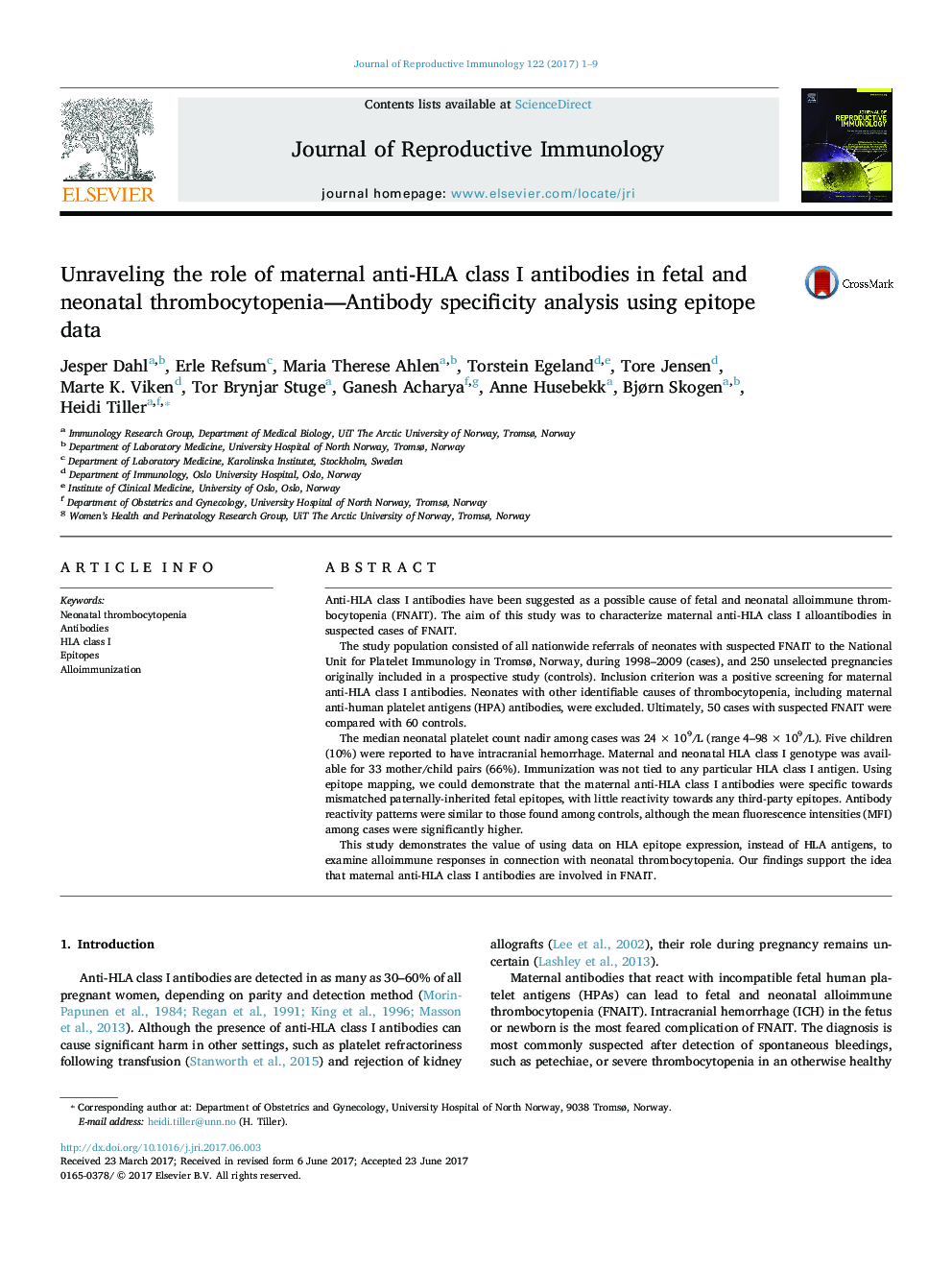| کد مقاله | کد نشریه | سال انتشار | مقاله انگلیسی | نسخه تمام متن |
|---|---|---|---|---|
| 5696422 | 1600690 | 2017 | 9 صفحه PDF | دانلود رایگان |

- The idea of maternal anti-HLA class I antibody-induced FNAIT is supported.
- Maternal anti-HLA class I antibodies are fetal/paternal epitope specific.
- Maternal immunization was not tied to any particular HLA class I antigen.
- Risk of neonatal thrombocytopenia may be antibody-level dependent.
Anti-HLA class I antibodies have been suggested as a possible cause of fetal and neonatal alloimmune thrombocytopenia (FNAIT). The aim of this study was to characterize maternal anti-HLA class I alloantibodies in suspected cases of FNAIT.The study population consisted of all nationwide referrals of neonates with suspected FNAIT to the National Unit for Platelet Immunology in Tromsø, Norway, during 1998-2009 (cases), and 250 unselected pregnancies originally included in a prospective study (controls). Inclusion criterion was a positive screening for maternal anti-HLA class I antibodies. Neonates with other identifiable causes of thrombocytopenia, including maternal anti-human platelet antigens (HPA) antibodies, were excluded. Ultimately, 50 cases with suspected FNAIT were compared with 60 controls.The median neonatal platelet count nadir among cases was 24 Ã 109/L (range 4-98 Ã 109/L). Five children (10%) were reported to have intracranial hemorrhage. Maternal and neonatal HLA class I genotype was available for 33 mother/child pairs (66%). Immunization was not tied to any particular HLA class I antigen. Using epitope mapping, we could demonstrate that the maternal anti-HLA class I antibodies were specific towards mismatched paternally-inherited fetal epitopes, with little reactivity towards any third-party epitopes. Antibody reactivity patterns were similar to those found among controls, although the mean fluorescence intensities (MFI) among cases were significantly higher.This study demonstrates the value of using data on HLA epitope expression, instead of HLA antigens, to examine alloimmune responses in connection with neonatal thrombocytopenia. Our findings support the idea that maternal anti-HLA class I antibodies are involved in FNAIT.
Journal: Journal of Reproductive Immunology - Volume 122, August 2017, Pages 1-9